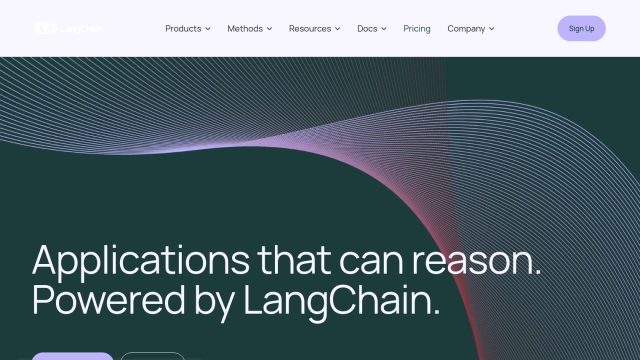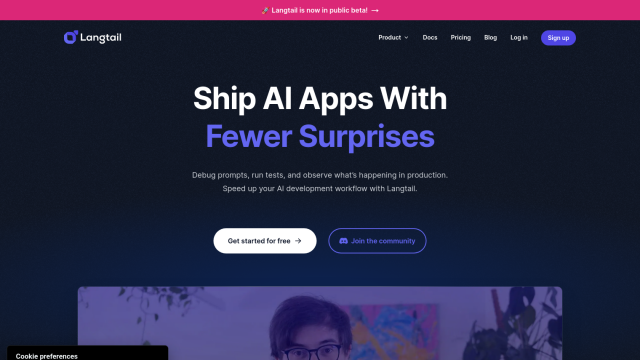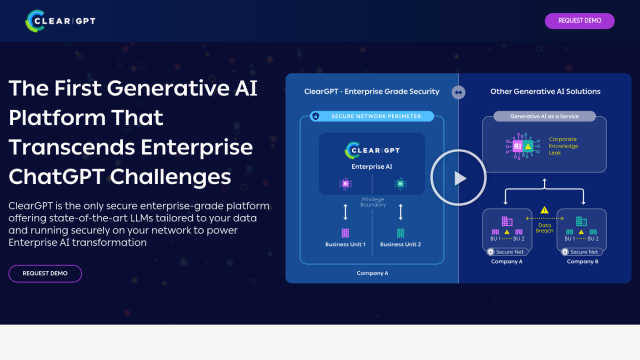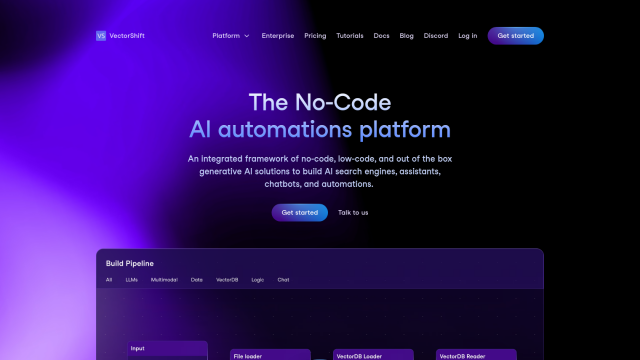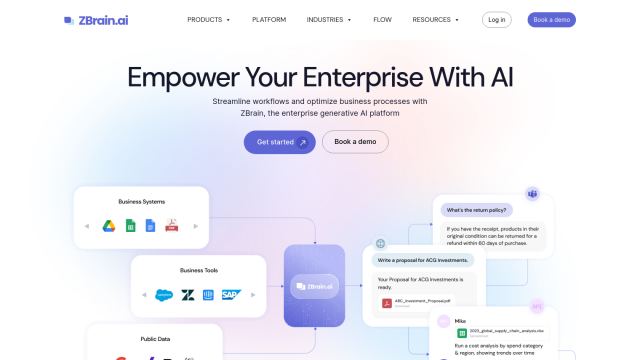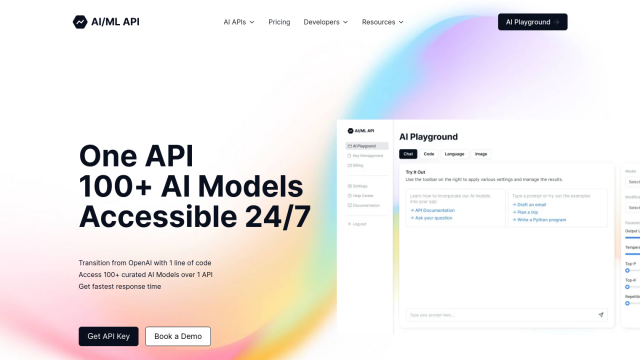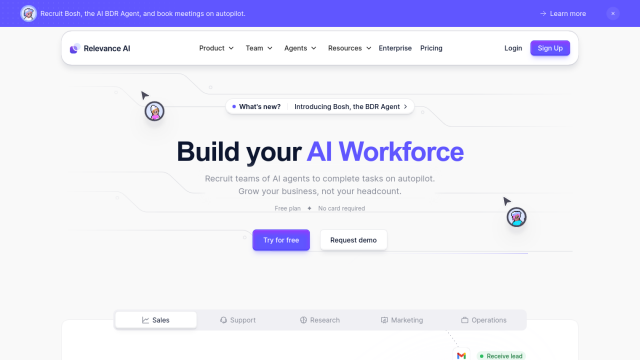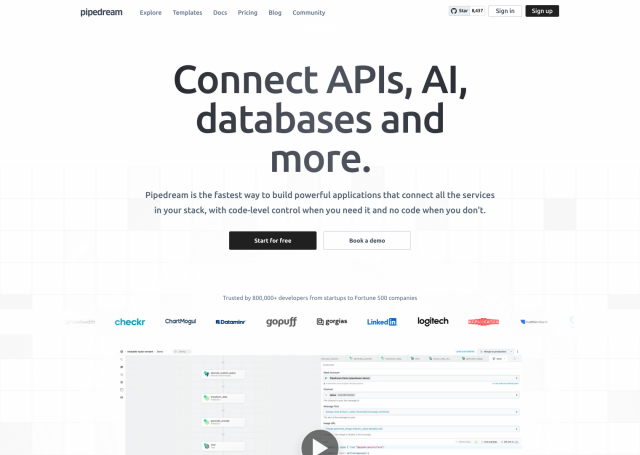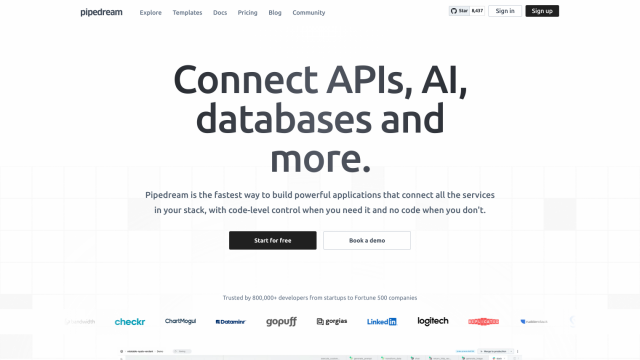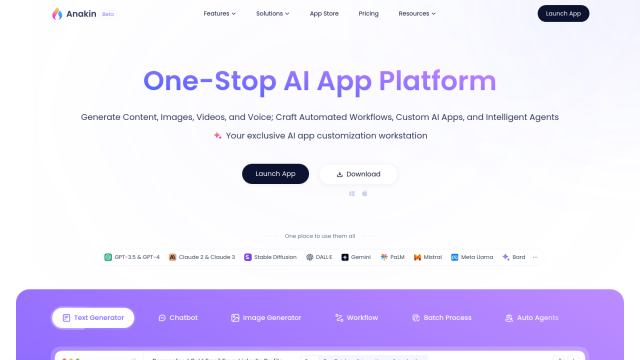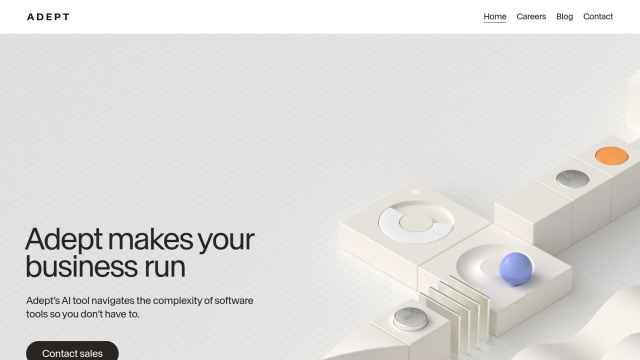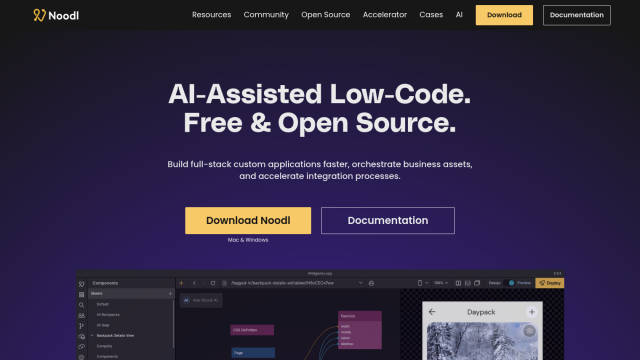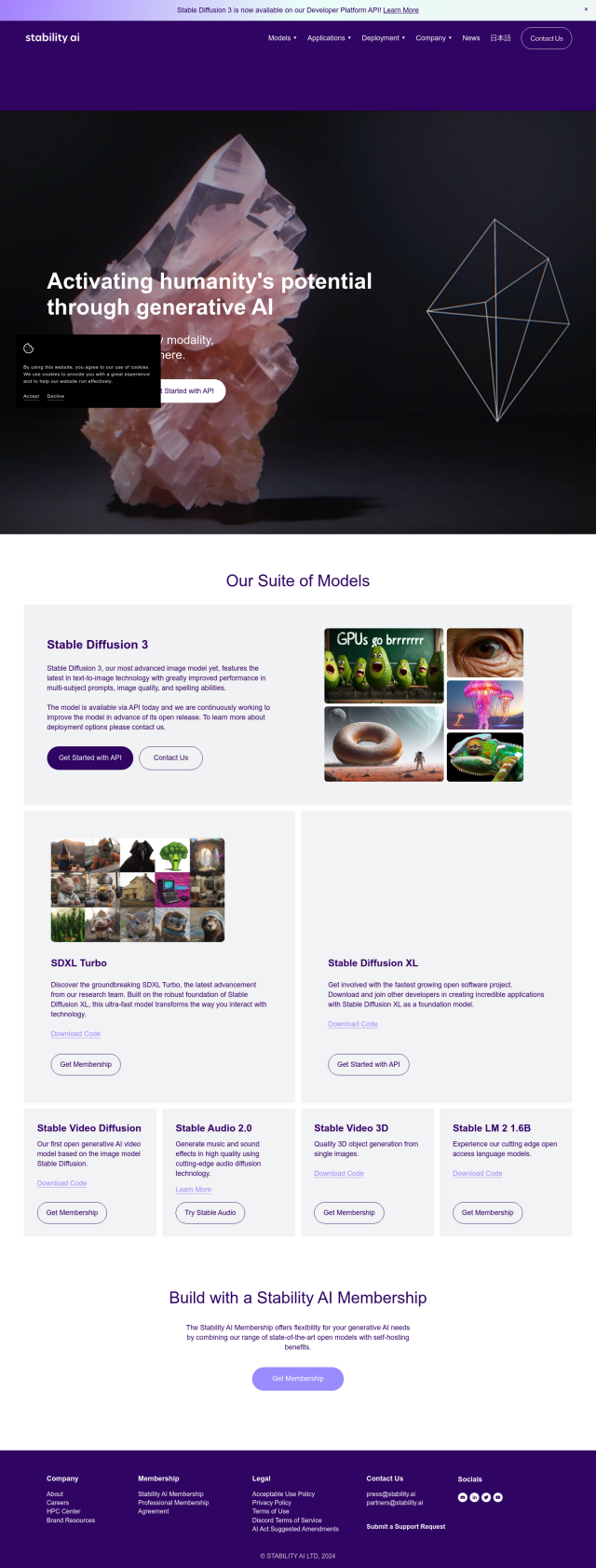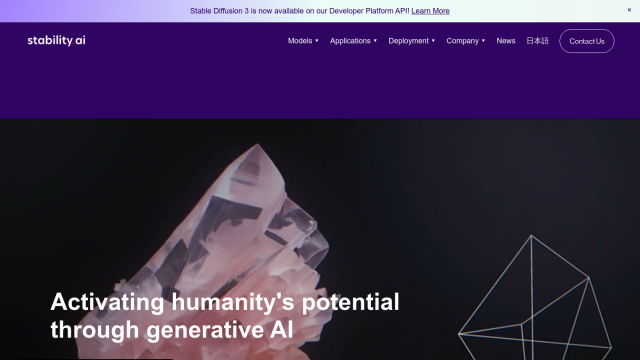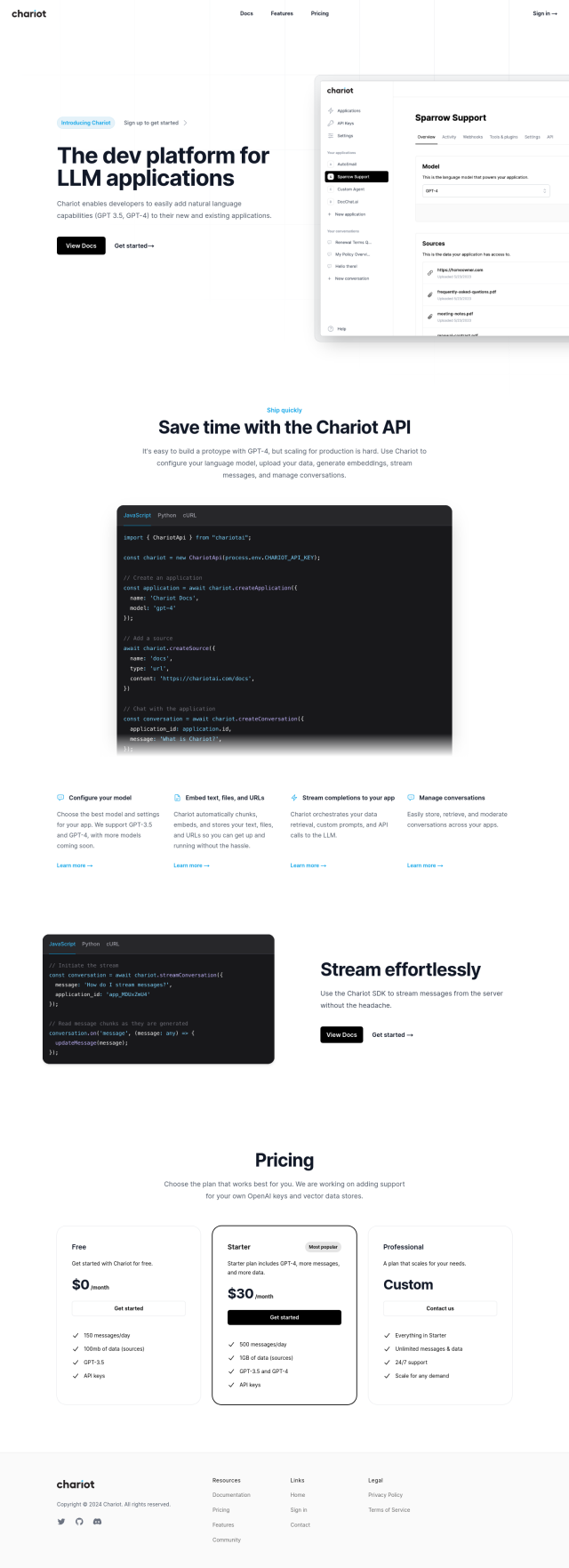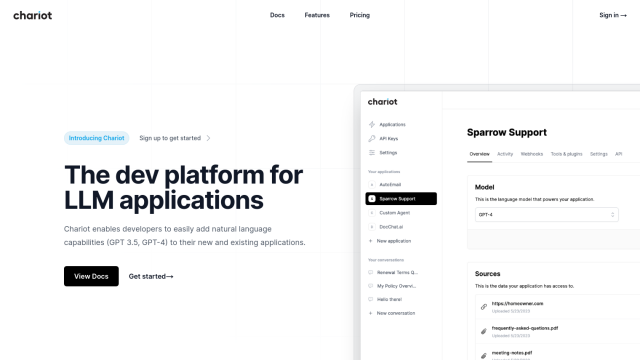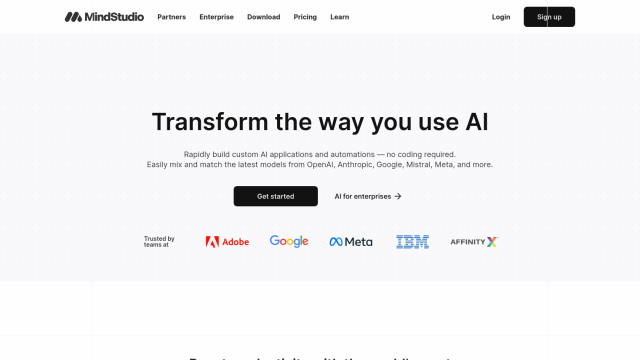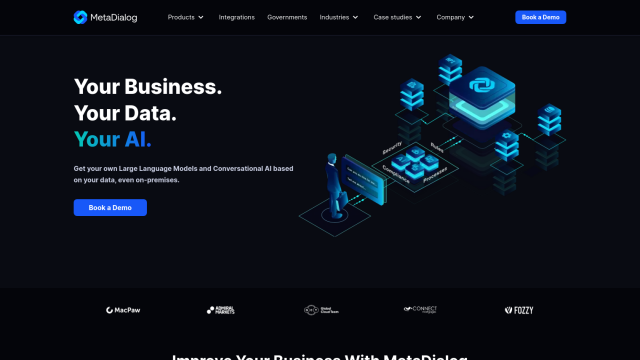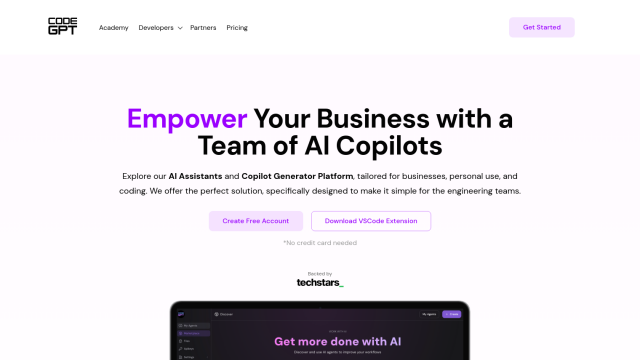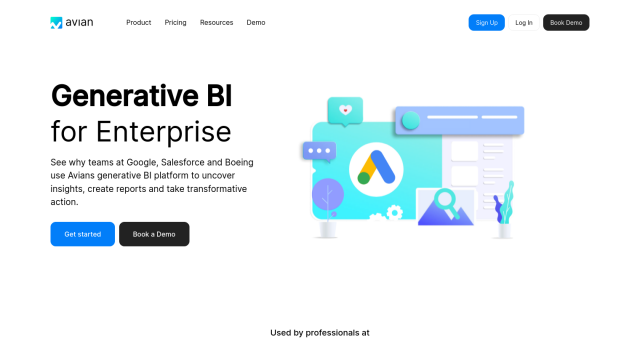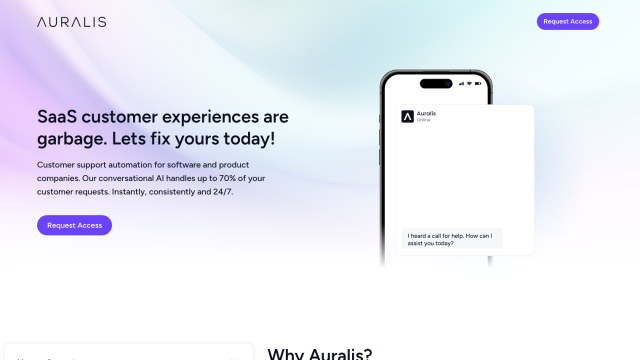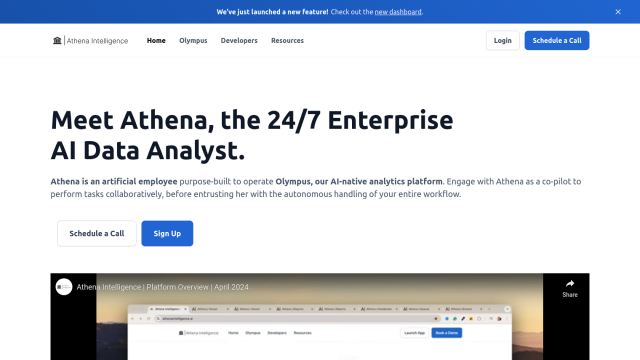

Abacus.AI
If you're looking for another LangChain alternative, Abacus.AI is a powerful option. The platform lets developers create and run large-scale applied AI agents and systems with generative AI and other neural network methods. It comes with tools like ChatLLM for end-to-end RAG systems and AI Agents for automating complex workflows. Abacus.AI is designed to be easy to integrate into applications, and it can be used for automating complex tasks, real-time forecasting and anomaly detection.

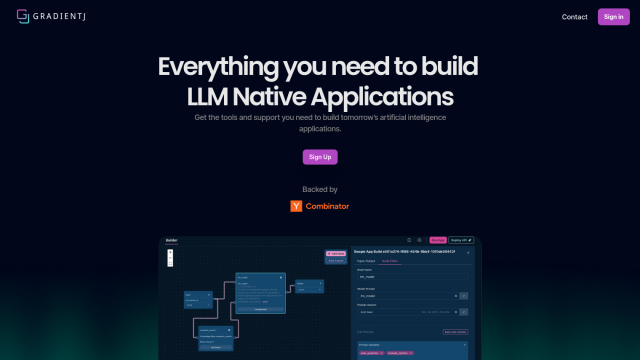
GradientJ
Another option is GradientJ. This full-stack platform lets Large Language Model (LLM) teams build next-gen AI apps. It includes tools for ideating, building and managing LLM-native apps, so you can easily leverage multiple models and integrations. GradientJ features an app-building canvas that learns from you and tools for smart data extraction and chatbots, so you can work collaboratively and maintain your applications.


Zerve
Zerve offers a flexible foundation for running and managing GenAI and Large Language Models within your own architecture. It combines open models, serverless GPUs and your own data to speed up data science and ML workflows. Features include an integrated environment, fine-grained GPU control and collaboration tools, making it a good fit for data science teams that need control over data and infrastructure.

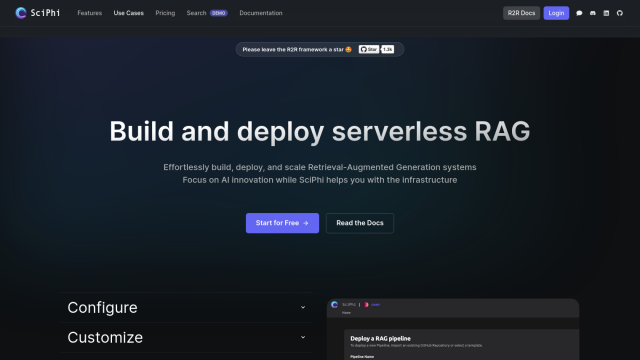
SciPhi
If you're looking for a focus on deploying and scaling Retrieval-Augmented Generation (RAG) systems, check out SciPhi. The platform offers flexible document ingestion, robust document management and dynamic scaling. SciPhi also offers flexible provider connections and deployment of advanced methods like HyDE and RAG-Fusion. It's open-source and offers a variety of pricing tiers depending on your project needs.

